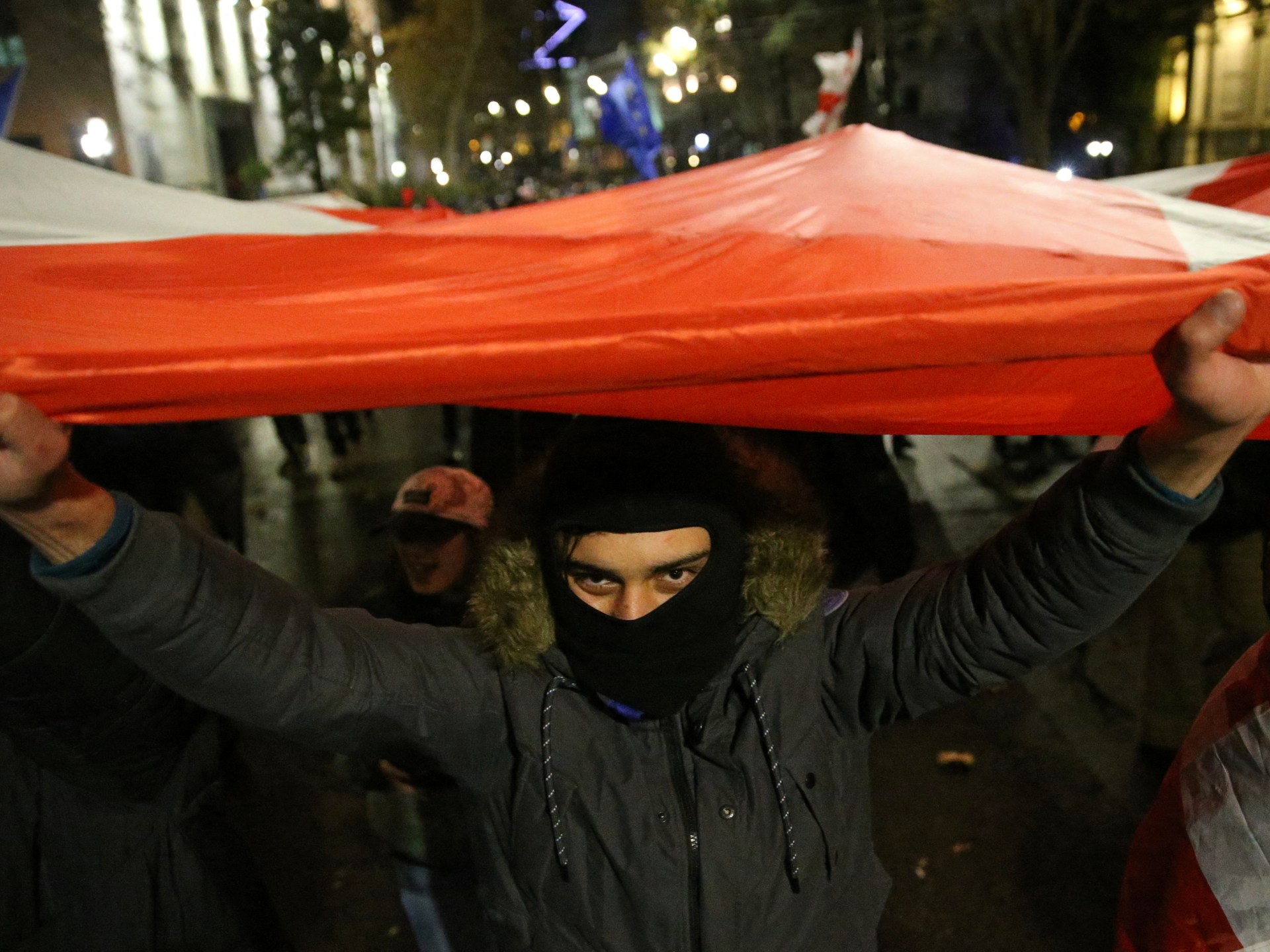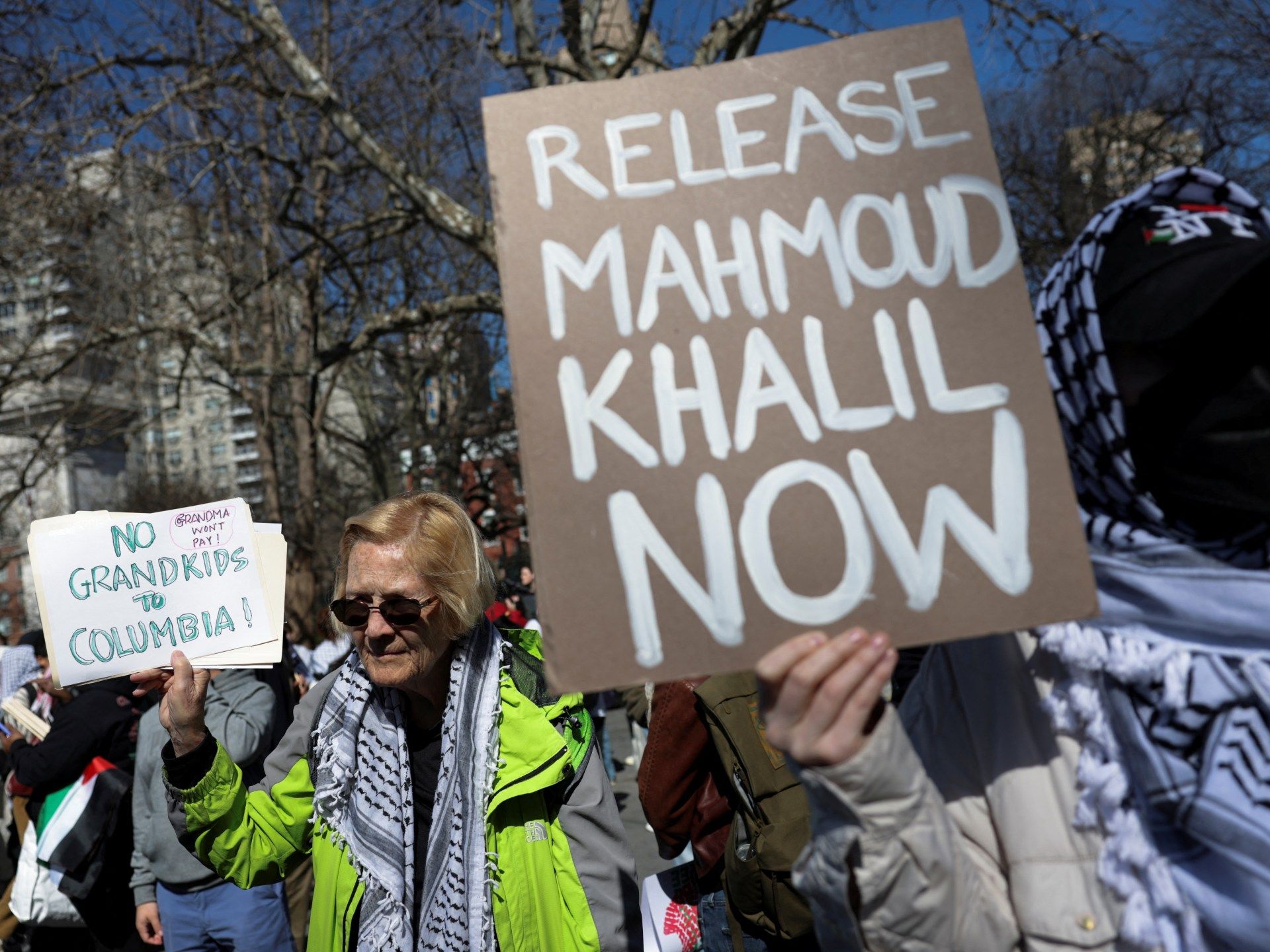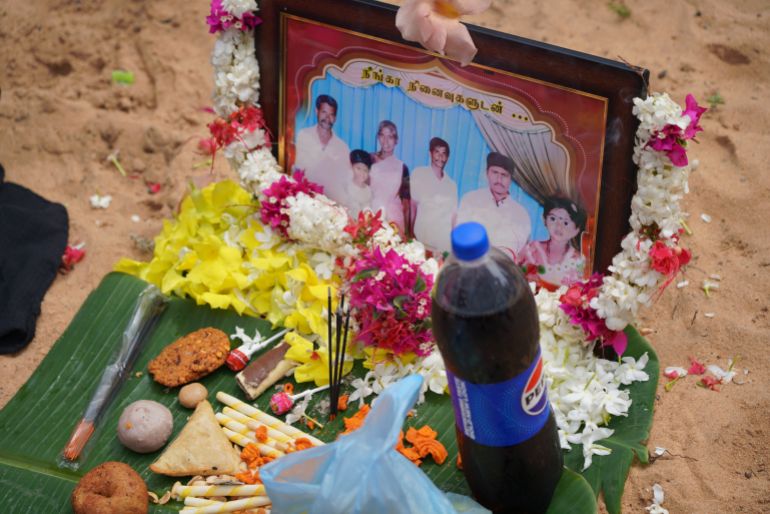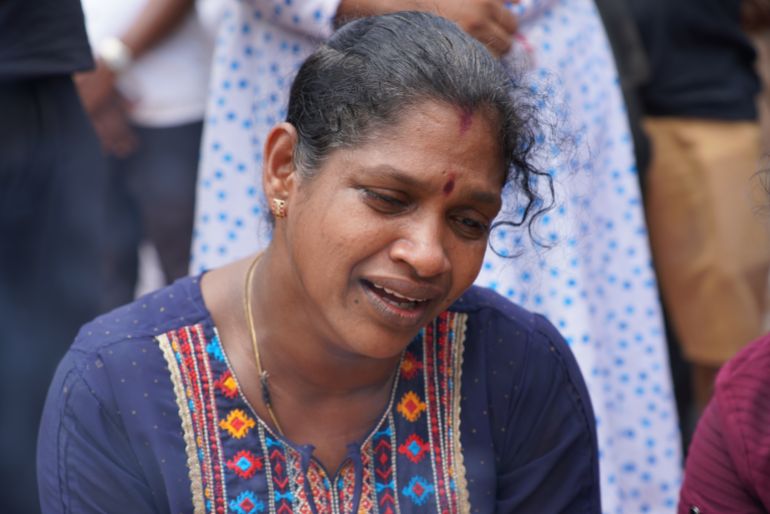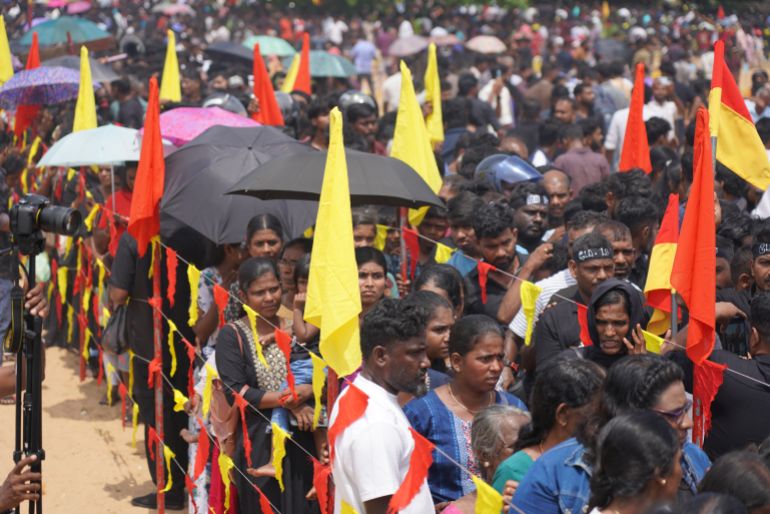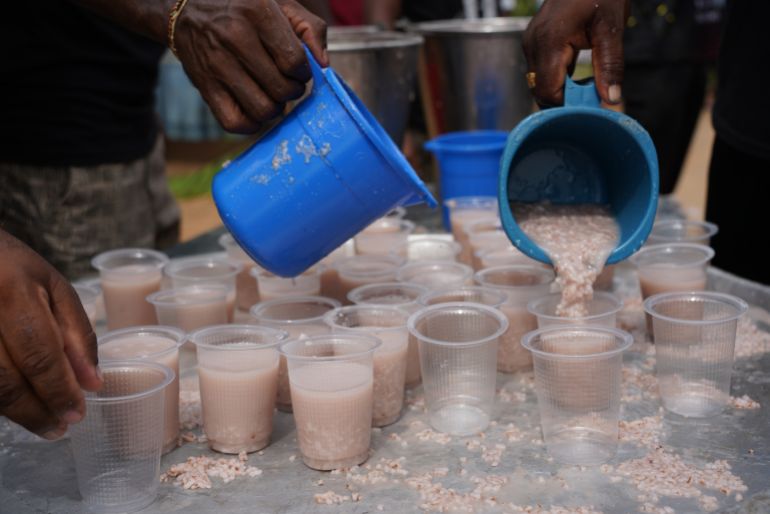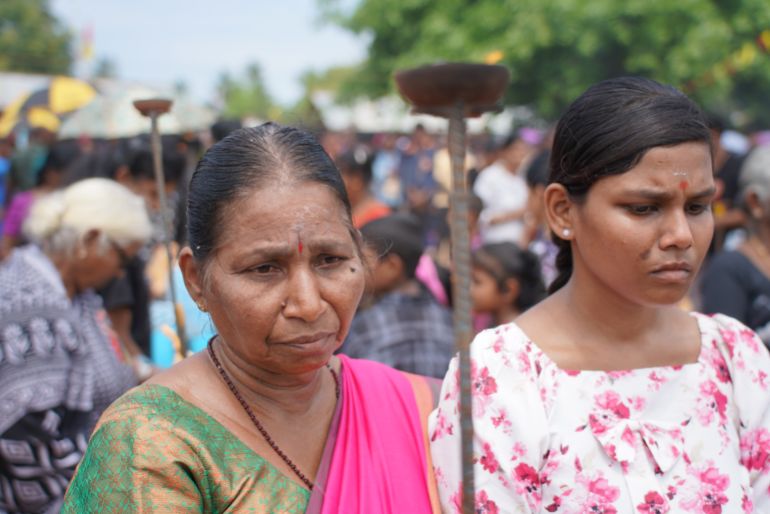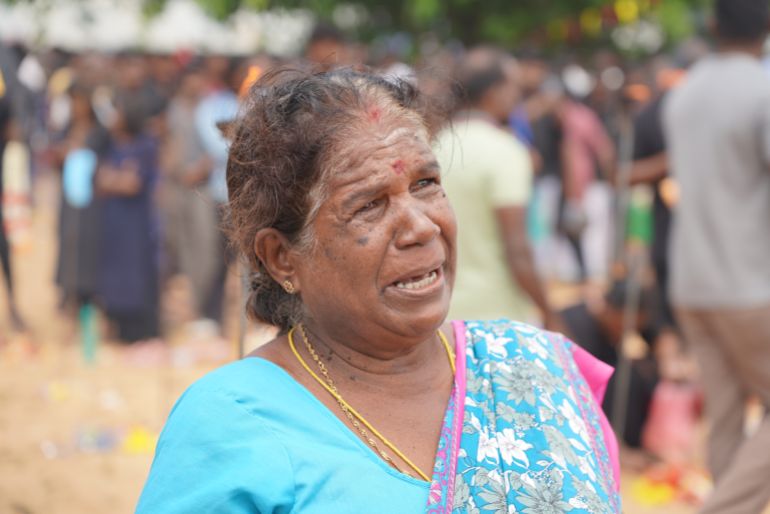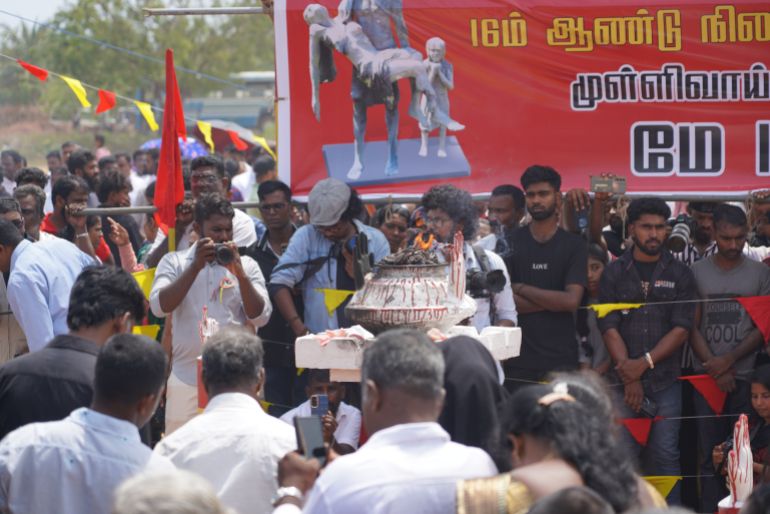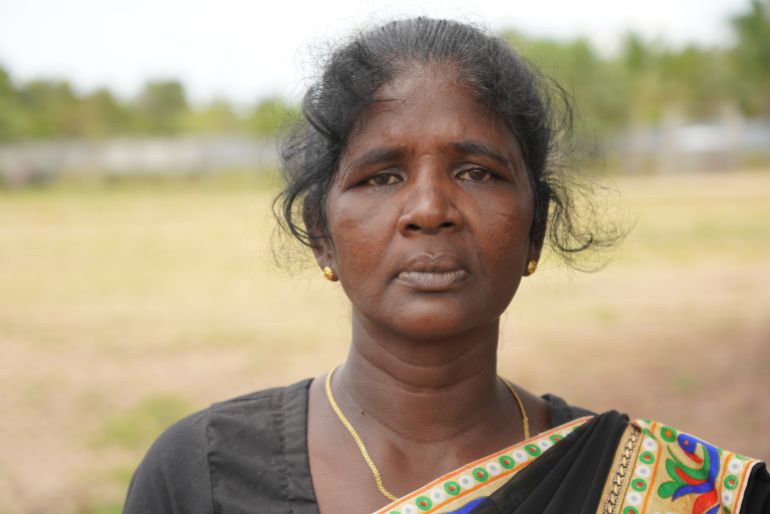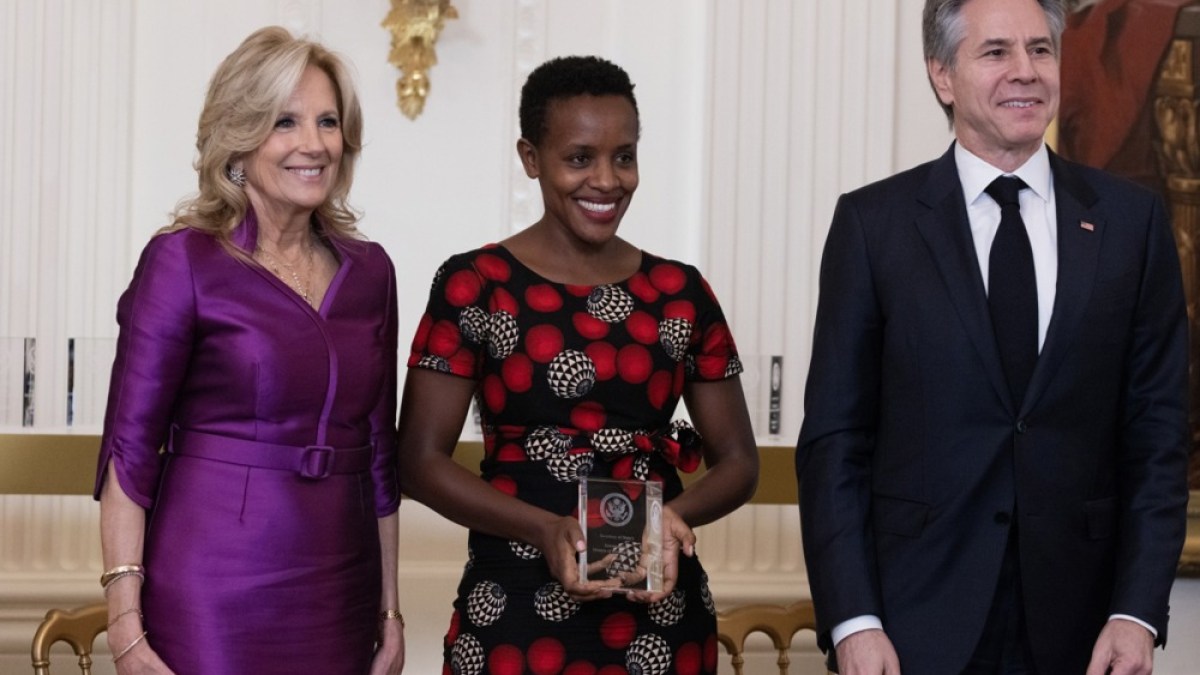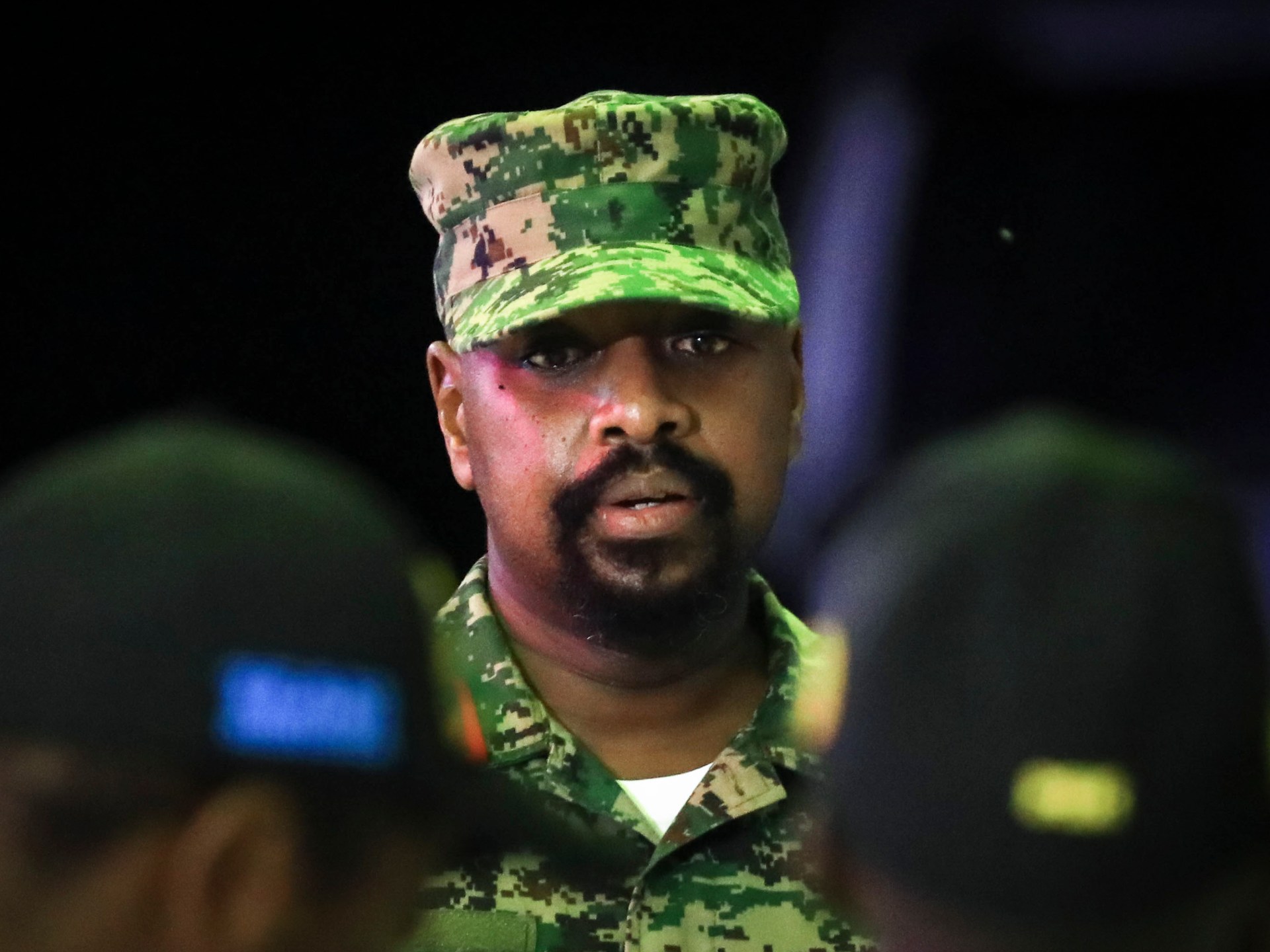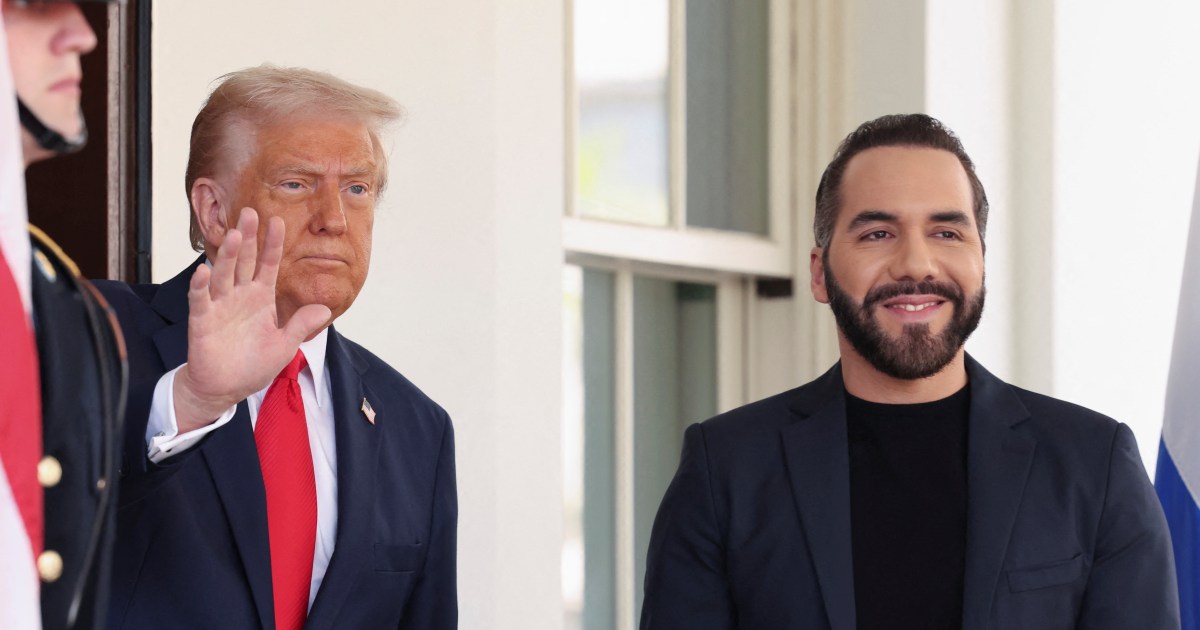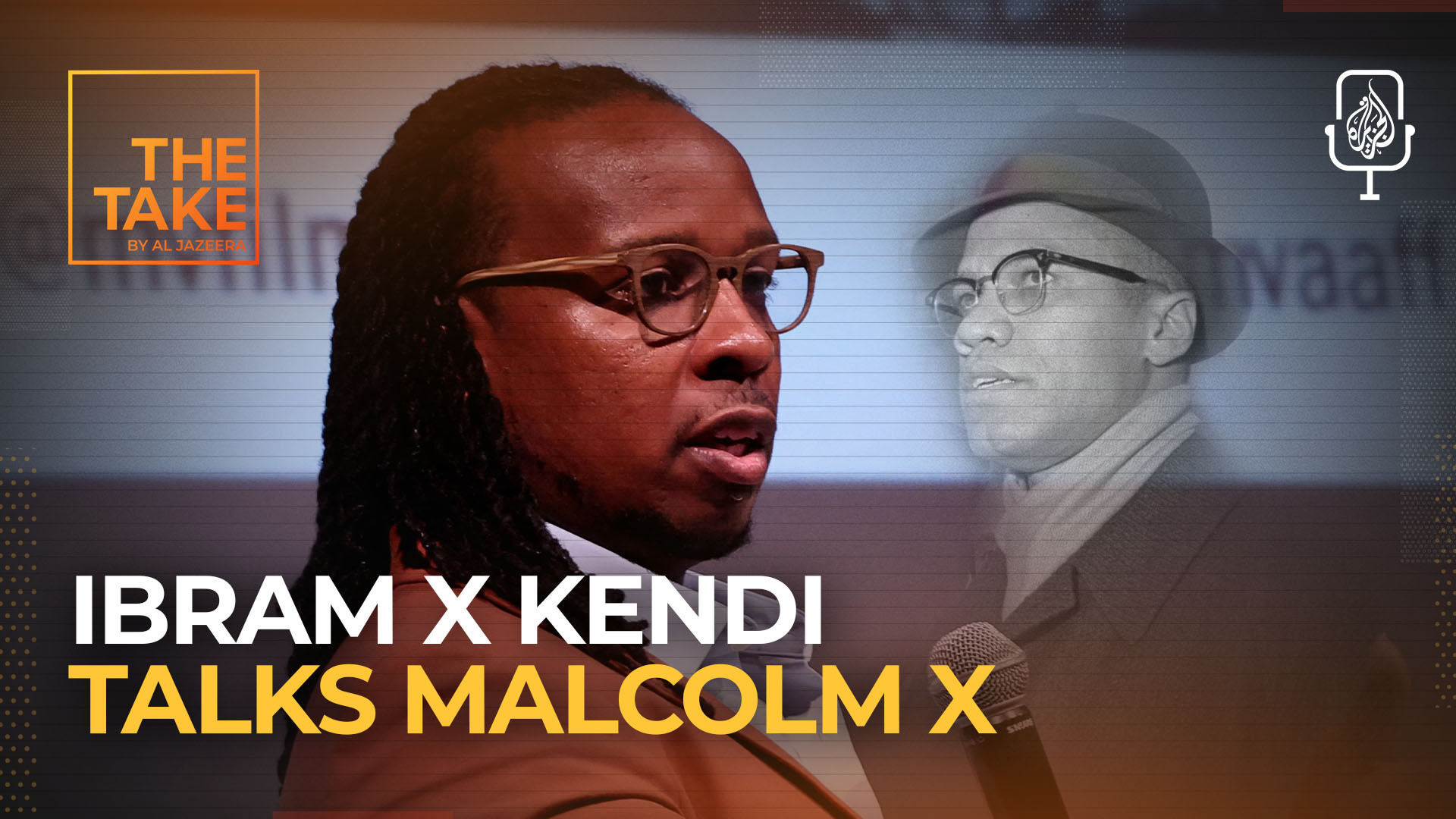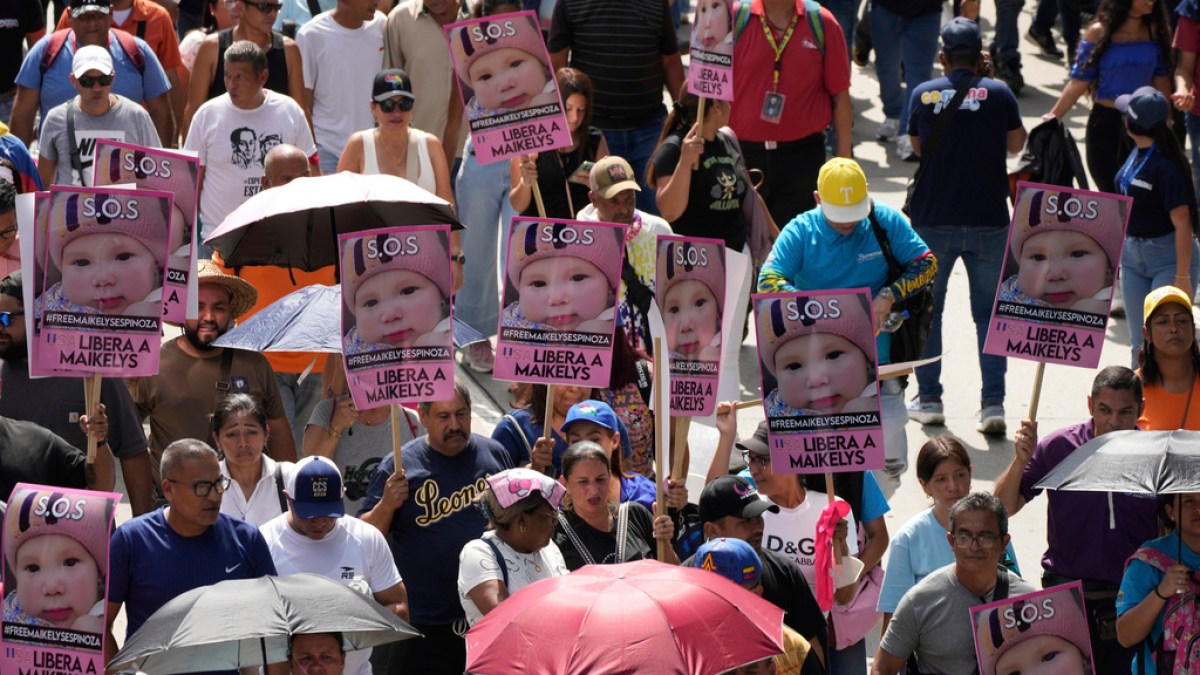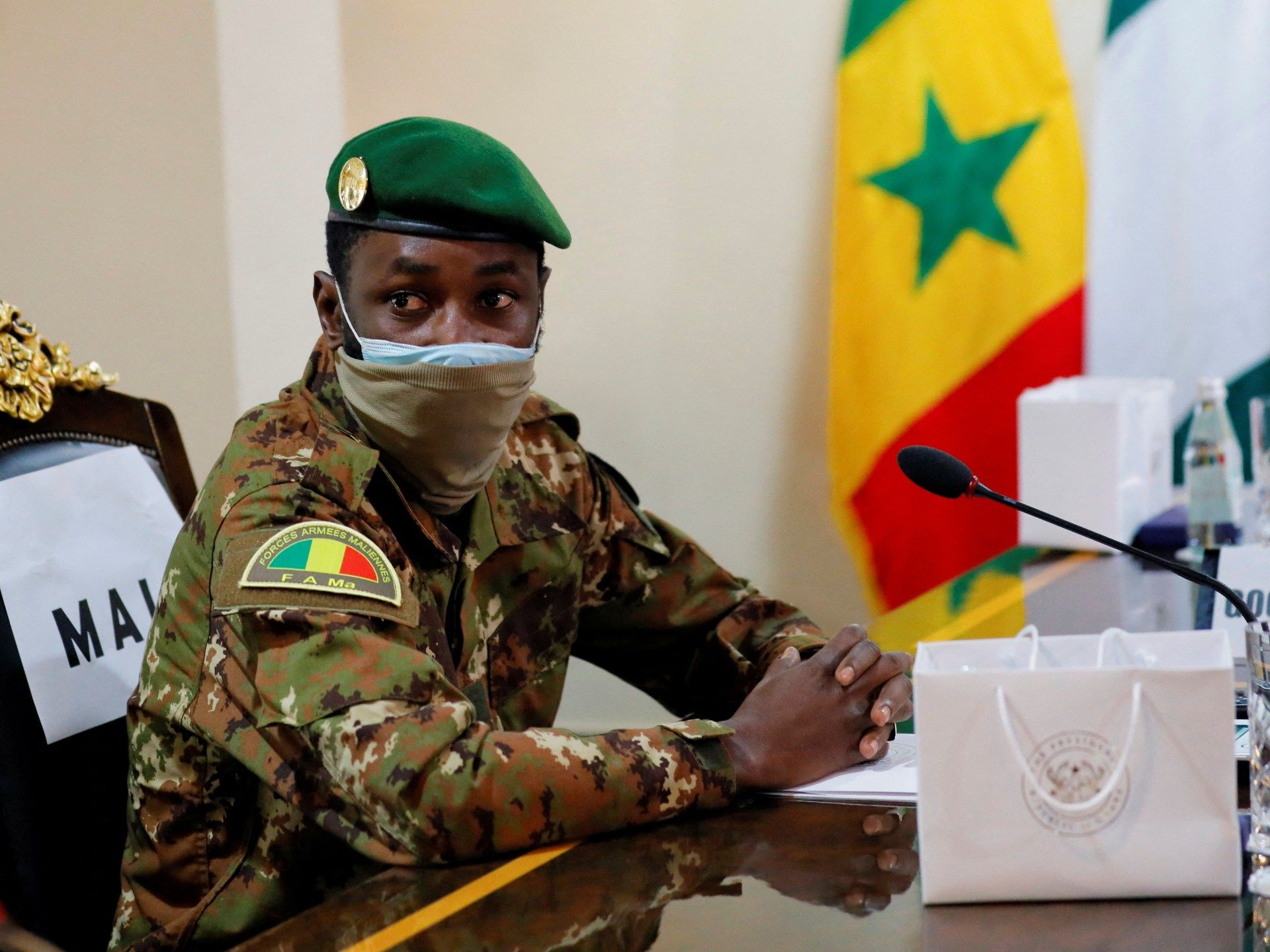Marines prepare for deployment in Los Angeles as protests spread across US | Donald Trump News
The secretary of the Department of Homeland Security, Kristi Noem, promises that forces will continue their immigration crackdown in an effort to “liberate” Los Angeles, pushing back at criticism that sending the United States military into the city was unwarranted and illegal.
“We have more assets now, today, than we did yesterday. We had more yesterday than we did the day before, so we are only building momentum,” Noem said during a news conference in the city. “This is only going to continue and be increased until we have peace on the streets of Los Angeles.”
As Noem was speaking, a US Democratic senator from California, Alex Padilla, was forcefully ejected from the room while trying to make himself heard – a removal that was swiftly condemned by other Democrats.
Padilla’s office said that once outside the room, the senator was pushed to the ground and handcuffed. He was later released.
President Donald Trump’s decision to dispatch troops to Los Angeles over the objections of California Governor Gavin Newsom has prompted a national debate about the use of the military in law enforcement operations on US soil.
Some 700 US Marines will be on the streets of the city by Thursday or Friday, the military has said, to support up to 4,000 National Guard troops in protecting federal property and federal agents, including on immigration raids.
Noem defended the use of National Guard troops and Marines alongside ICE agents and other federal personnel, saying Trump “has the right to utilise every authority that he has”.
The state of California is seeking a federal court order later today that would stop troops from “patrolling the streets of Los Angeles” and limit their role to protecting federal personnel and property. California’s lawsuit ultimately seeks to rescind Trump’s order to deploy the National Guard to the area.

In a court filing on Thursday, California argued that the federal government has already violated the law by having National Guard troops assist ICE agents in immigration raids.
Noem said federal officers have arrested more than 1,500 people and that the department has “tens of thousands of targets” in the region.
She said the Internal Revenue Service (IRS) was investigating whether there are financial links between the protests and political advocacy groups, something of which there has been little evidence.
Trump’s parade
On Saturday, Americans likely will see split-screen images of US troops on the streets of two major cities: Los Angeles, where troops are guarding federal buildings, and Washington, where soldiers, accompanied by tanks and other armoured vehicles, will rumble down Constitution Avenue in a rare public display of military might to celebrate the army’s 250th anniversary.
Nearly 2,000 protests against the parade, which is taking place on Trump’s 79th birthday, are planned around the country in one of the biggest demonstrations against Trump since he returned to power in January.
Mostly peaceful street protests so far this week have taken place in multiple cities besides Los Angeles, including New York, Chicago, Washington, DC, and San Antonio, Texas.
Texas Governor Greg Abbott said Thursday he has ordered the deployment of more than 5,000 Texas National Guard troops, along with more than 2,000 state police, to help local law enforcement manage protests against Trump and the continuing federal immigration raids.
Abbott’s announcement did not detail where the troops were sent, but some were seen at a protest Wednesday night in downtown San Antonio near the Alamo. That protest drew hundreds of demonstrators but did not erupt into violence.
“Peaceful protests are part of the fabric of our nation, but Texas will not tolerate the lawlessness we have seen in Los Angeles in response to President Donald Trump’s enforcement of immigration law,” Abbott said. “Anyone engaging in acts of violence or damaging property will be arrested and held accountable to the full extent of the law.”
Mayors in San Antonio and Austin have said they did not ask for Abbott to mobilise the National Guard to their cities.
Missouri Governor Mike Kehoe on Thursday also activated the state’s National Guard “in response to civil unrest”.
“We respect, and will defend, the right to peacefully protest, but we will not tolerate violence or lawlessness in our state,” Kehoe said in a statement on the governor’s website. “While other states may wait for chaos to ensue, the State of Missouri is taking a proactive approach in the event that assistance is needed to support local law enforcement in protecting our citizens and communities.”

The Los Angeles protests began last Friday in response to a series of immigration raids in the city. Trump, in turn, called in the National Guard on Saturday, then ordered the deployment of Marines on Monday.
“Los Angeles was safe and sound for the last two nights. Our great National Guard, with a little help from the Marines, put the LA Police in a position to effectively do their job,” Trump posted on social media on Thursday.
State and city officials say Trump is exaggerating what is happening in the city and that local police have the situation under control. The protests have been largely orderly but occasionally punctuated by violence, mostly contained to a few blocks.
Police said demonstrators at one location threw commercial-grade fireworks and rocks at officers on Wednesday night.
Another group of nearly 1,000 demonstrators was peacefully marching through downtown when police suddenly opened fire with less lethal munitions in front of City Hall.
Limits sought
Trump is carrying out a campaign promise to deport immigrants, employing forceful tactics consistent with the norm-breaking political style that got him elected twice.
The administration has circulated images showing National Guard troops protecting immigration agents who were arresting suspected undocumented migrants – a permissible function for the troops under federal law.
But the state argues those Guard troops have crossed the line into illegal activity under the 1878 Posse Comitatus Act, which prohibits the military from participating in civilian law enforcement.
“For example, photos posted on social media by ICE depict heavily armed members of the National Guard standing alongside ICE agents during arrests,” California said in its latest court filing.
Unless a judge intervenes, the military’s role likely will grow to include “detention, interrogation, and other activities that are practically indistinguishable from urban policing operations”, the filing asserts.
The Trump administration said in a Wednesday court filing that the judge should not restrict the military’s activities in Los Angeles.
“Neither the National Guard nor the Marines are engaged in law enforcement. Rather, they are protecting law enforcement, consistent with longstanding practice and the inherent protective power to provide for the safety of federal property and personnel,” the administration wrote.
US Army Major-General Scott Sherman, who commands the task force of Marines and Guardsmen, told reporters the Marines will not load their rifles with live ammunition, but they will carry live rounds.


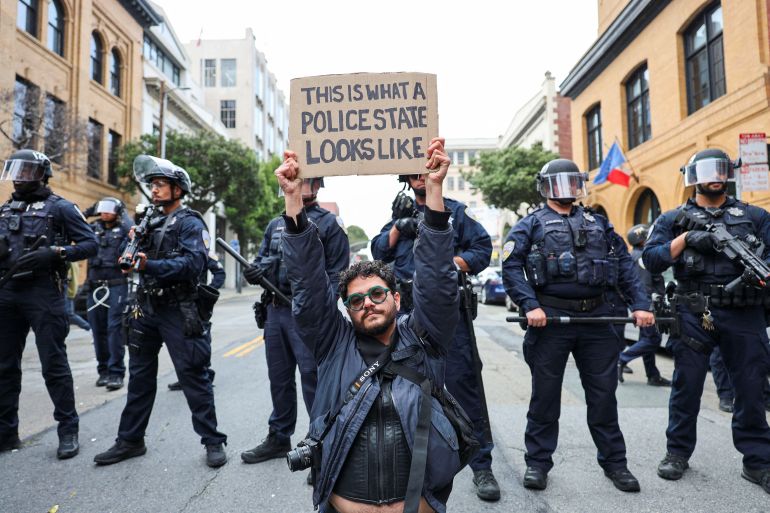
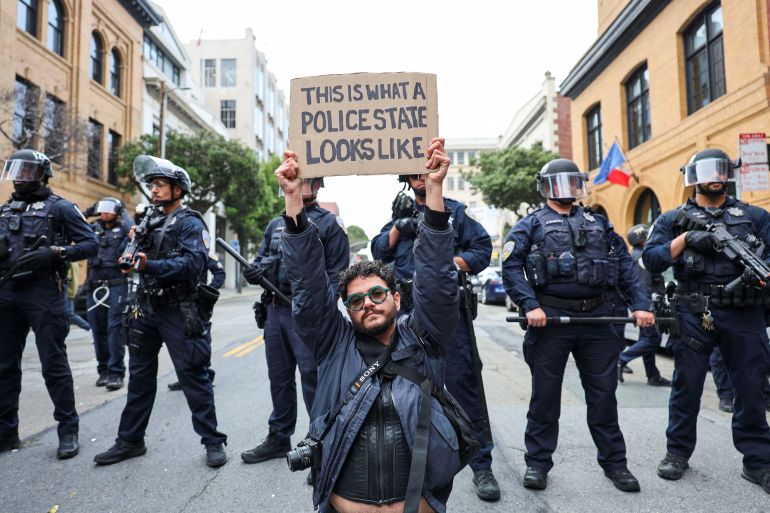
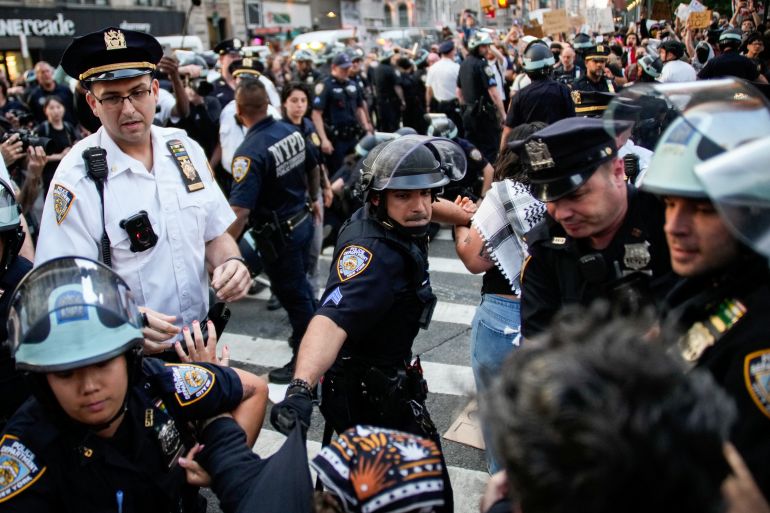
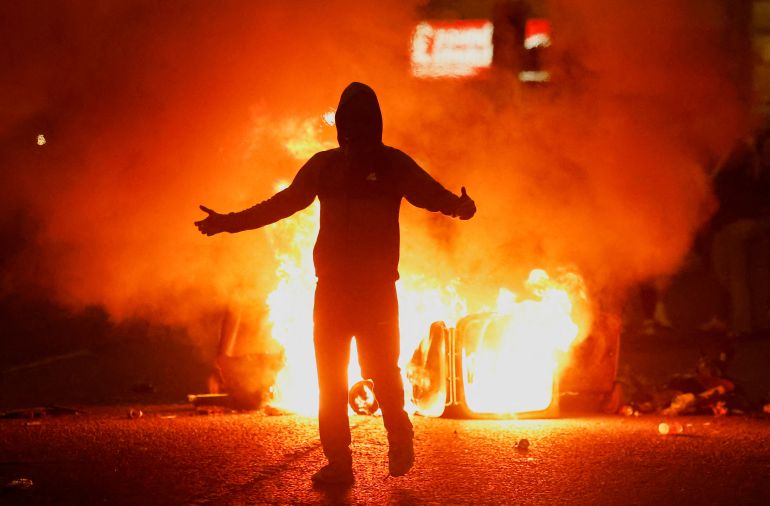


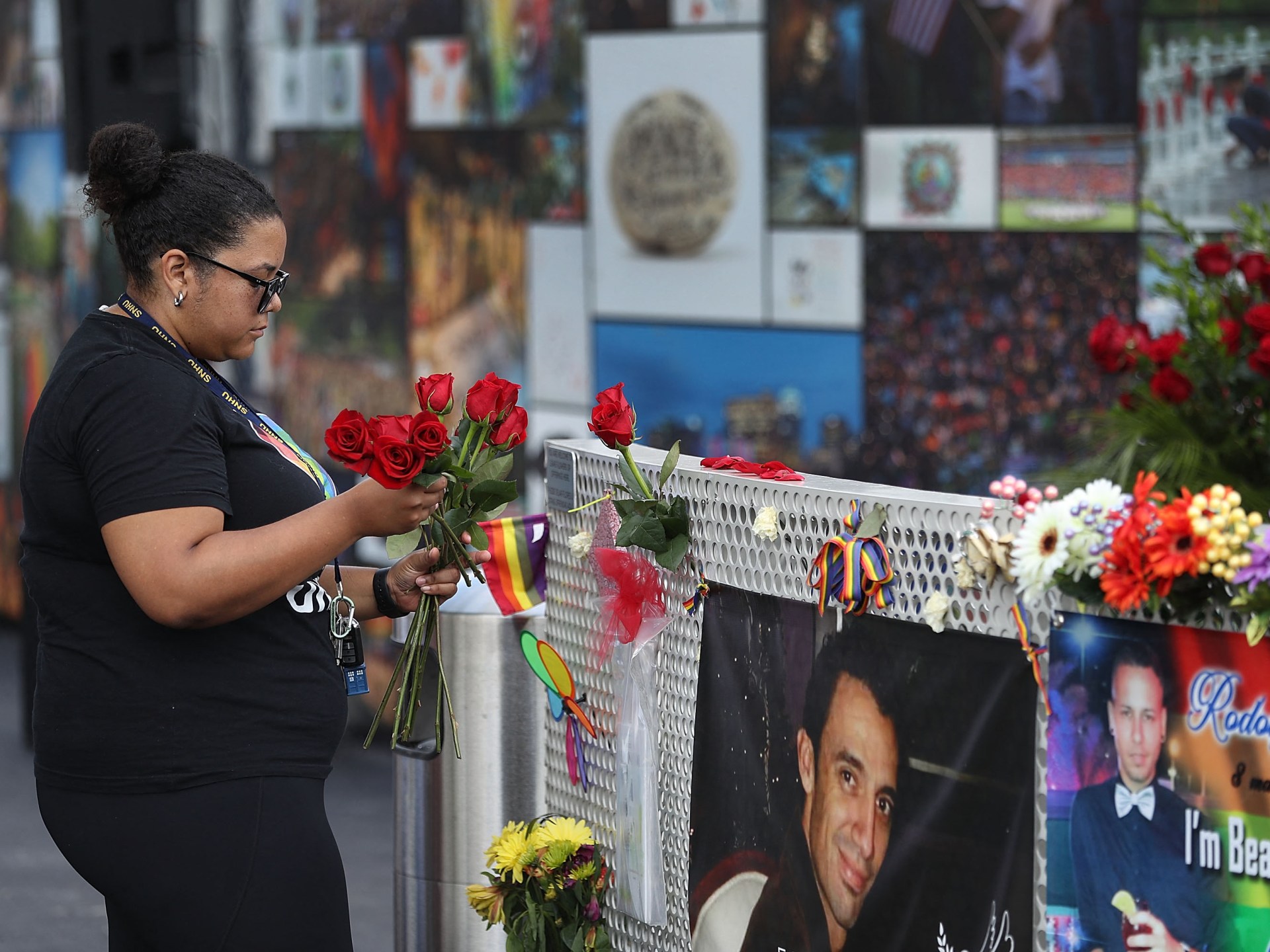
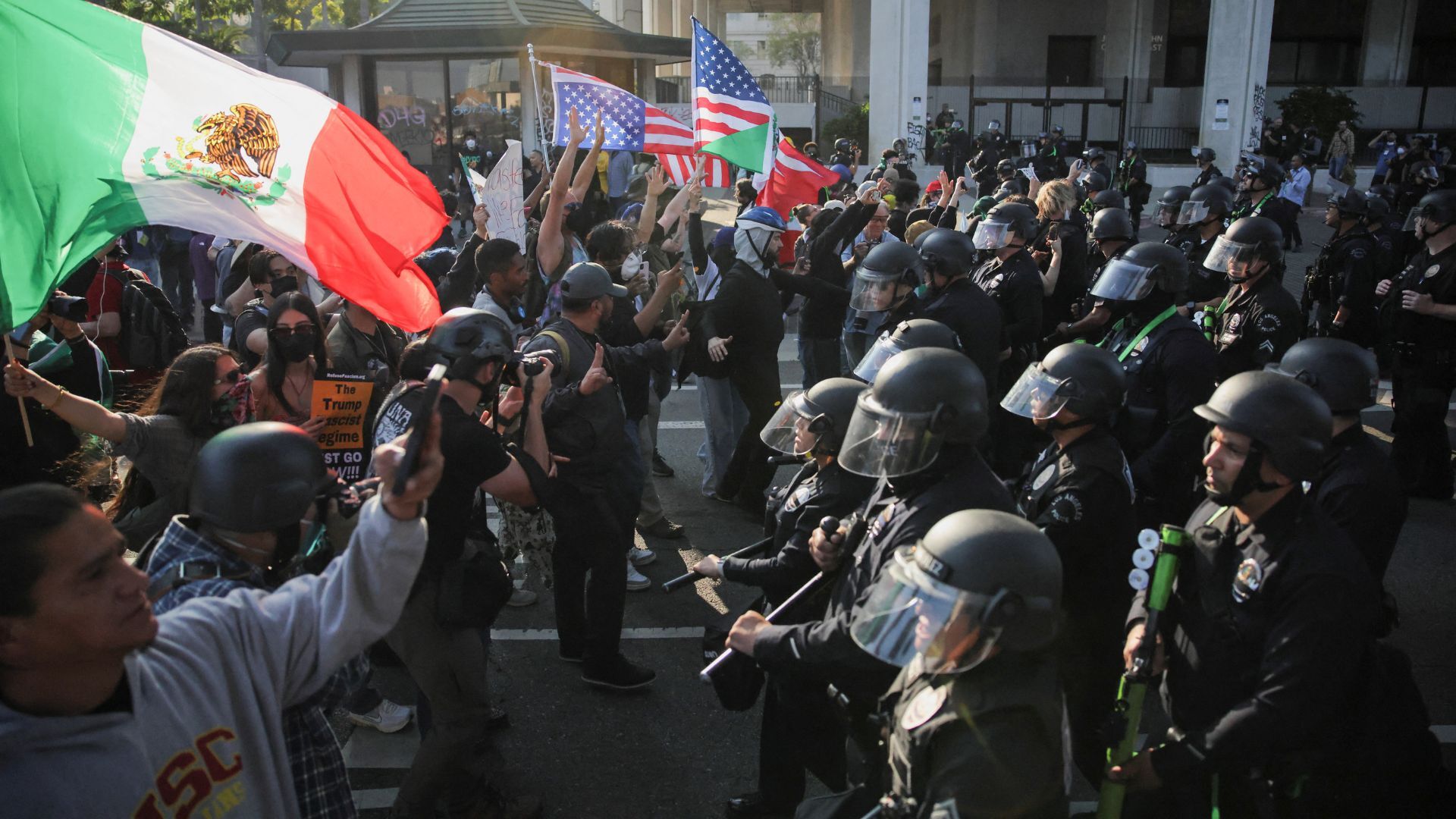
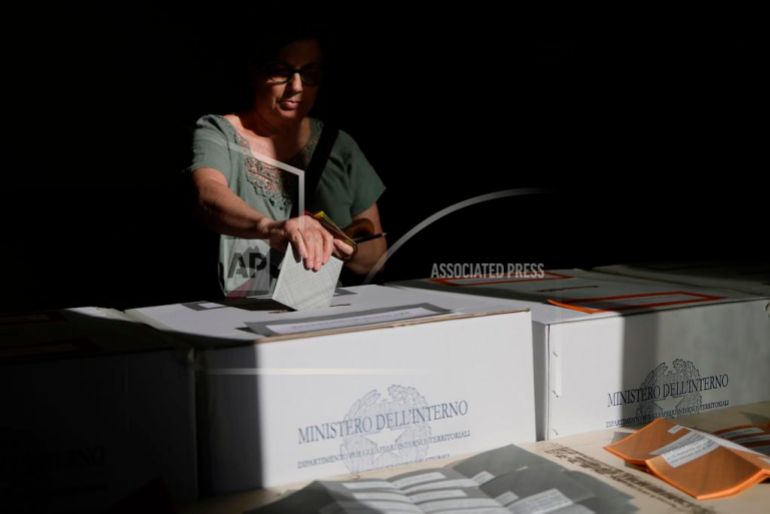
![A woman casts her ballots on referendums on citizenship and job protections, at a polling station in Rome, Sunday, June 8, 2025. [Cecilia Fabiano/LaPresse via AP]](https://www.occasionaldigest.com/wp-content/uploads/2025/06/AP-2-1749381738.jpg)
![A dog on a leash waits as its owner votes in a booth for referendums on citizenship and job protections, at a polling station in Milan, Italy, Sunday, June 8, 2025. [Claudio Furlan/LaPresse via AP]](https://www.occasionaldigest.com/wp-content/uploads/2025/06/AP-3-1749381760.jpg)


